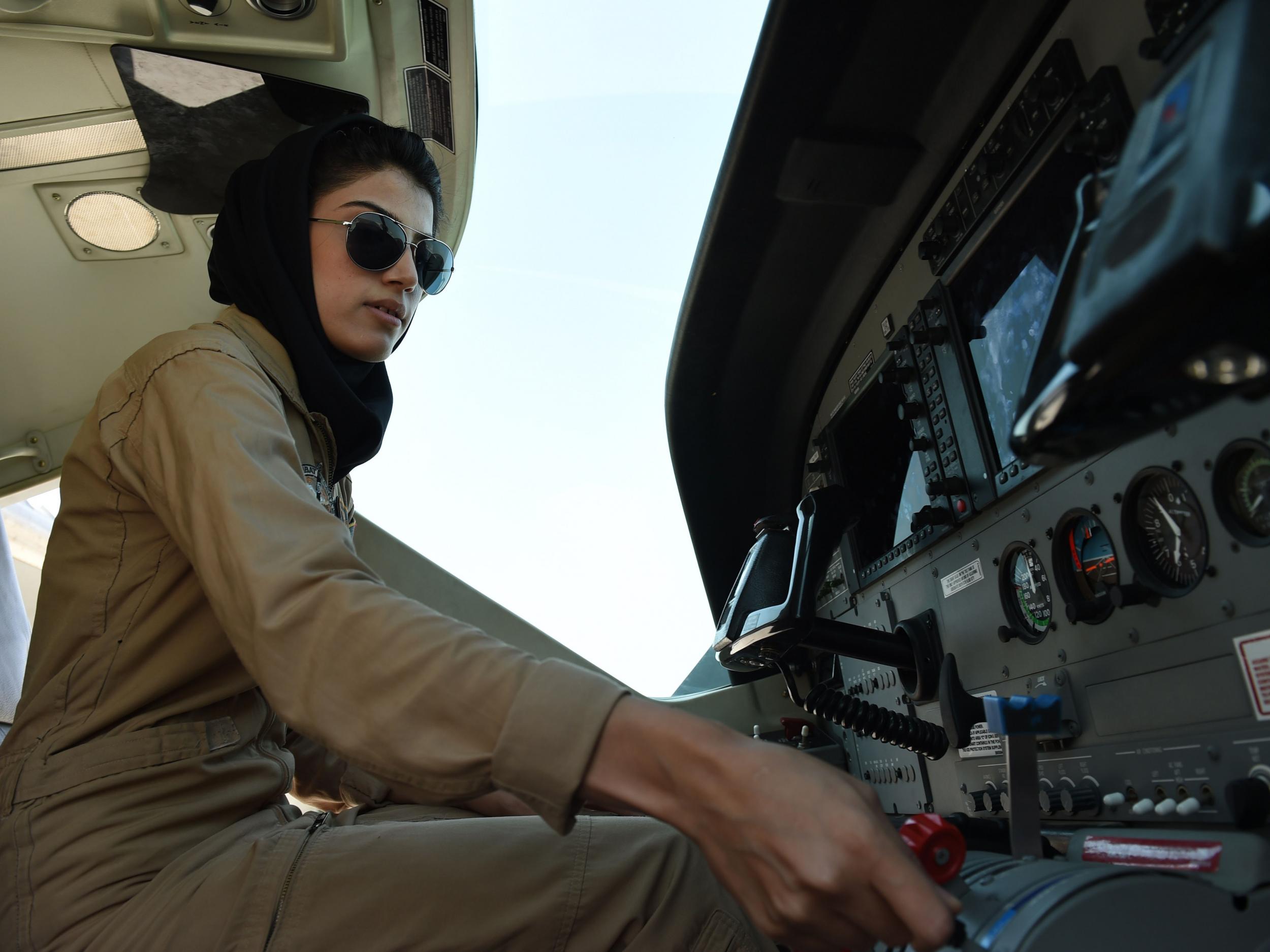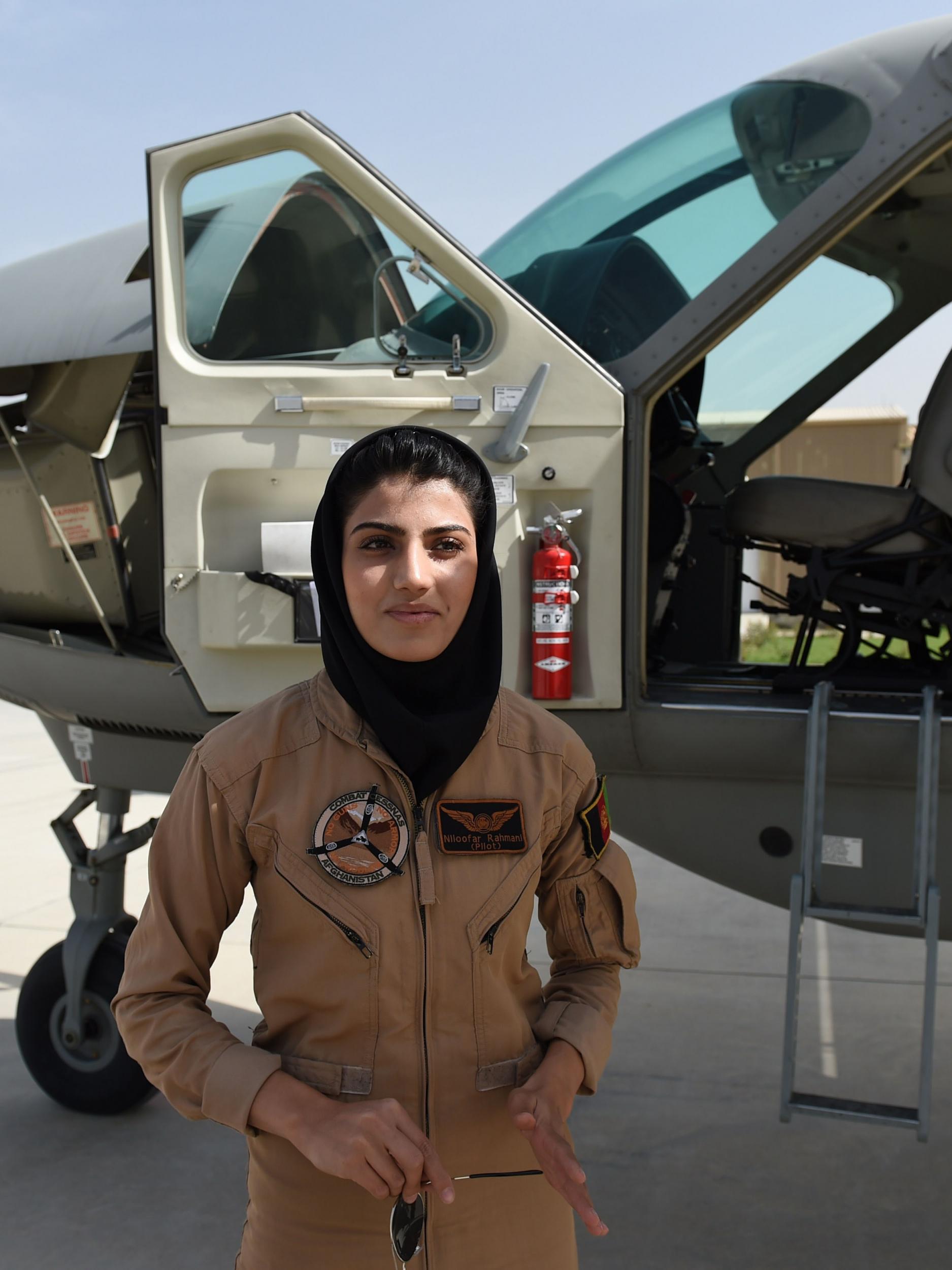Afghanistan's first female military pilot granted asylum in US after fleeing Taliban death threats
'I can finally live my life in peace,' says Niloofar Rahmani. 'Now all my worries are about my family in Afghanistan'

Afghanistan’s first female air force pilot has been granted asylum in the US after death threats forced her to flee her home country.
Captain Niloofar Rahmani became a celebrity in her homeland after she qualified to fly fighter jets and was hailed by US government as a symbol of women’s progress in the country.
But Washington has now ruled that it would be too dangerous for her to return home.
Having applied for asylum two years ago, she received it this week – on the day that suicide bomb attacks killed at least 25 people in Kabul, including 11 children and nine journalists.
Ms Rahmani, now 27, signed up to the military at the age of 18 under the US-led Afghan coalition and graduated from training school in 2013.
But as her fame spread, the death threats grew.
Taliban insurgents who considered her profession “shameful”, set out to punish her and members of her family including her uncles and cousins.
Facing reprisals for supporting her career, her immediate family had to go into hiding.
Her brother was targeted in two assassination attempts including a hit-and-run and her sister was reportedly forced to divorce and stopped from seeing her child.
A letter signed by the Taliban warned her: “If you carry on doing your job, you will be responsible for the destruction of your family”.

Ms Rahmani said at one point that she would “never have put my family through this” if she had known how bad it would get.
She said her Afghan male colleagues in the air force treated her with contempt and that she felt at risk.
She added that things were “getting worse and worse” in her homeland.
In 2015, Captain Rahmani fled to the US where she received the State Department’s International Women of Courage Award.
The US military paid for further training for her and Michelle Obama, then the US First Lady, praised her courage.
After being granted asylum, Ms Rahmani told The Wall Street Journal: “All I want now is to go back to my dream of flying”.
She added: “I can finally live my life in peace. Now all my worries are about my family in Afghanistan.”
She said she was “really happy and thankful” to those that made it happen.
When she applied for asylum in 2016, military officials in Afghanistan argued that her life was not at risk at all, and asked the US to reject her application.
“I am sure she lied by saying she was threatened, just to win the asylum case,” a defence ministry spokesman said.
The security situation in Afghanistan has deteriorated in recent months during a war that has been raging for more than 16 years.
A recent report showed 14.5 per cent of the country’s districts are under Taliban and Isis control, while security forces numbers have fallen.
Last month, the Taliban announced its annual spring offensive, dismissing an offer of peace talks by President Ashraf Ghani without preconditions.
Hundreds of people have been killed and wounded in high-profile attacks in Kabul this year.
Join our commenting forum
Join thought-provoking conversations, follow other Independent readers and see their replies
Comments
Bookmark popover
Removed from bookmarks